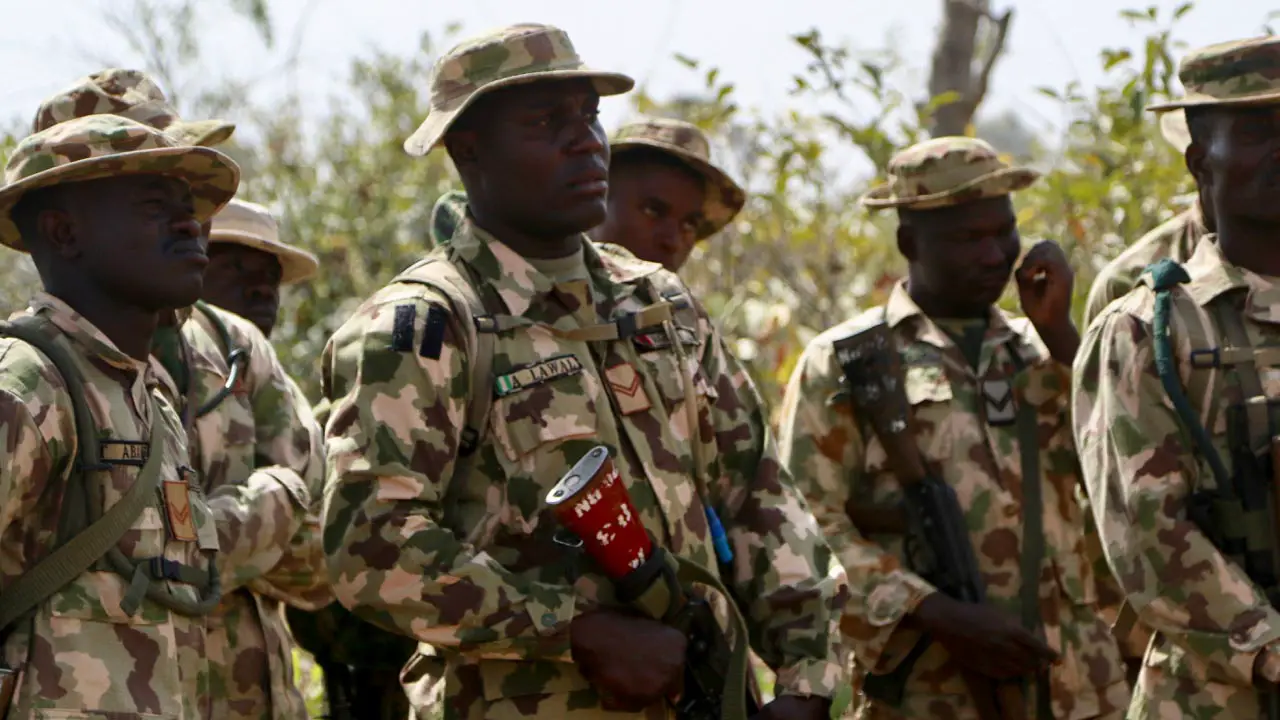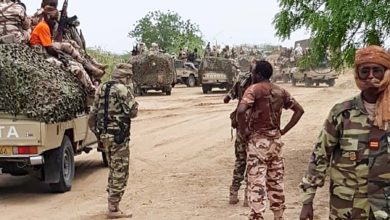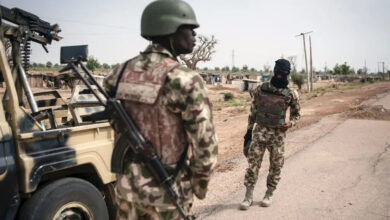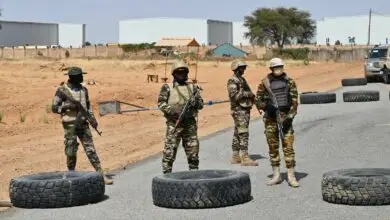Nigerian troops “neutralized” five Boko Haram insurgents and captured a suspected militant in northeast Nigeria’s Borno state close to the Cameroon border, the army said.
It is unclear to which faction of Boko Haram the militants belonged, although the faction led by Abubakar Shekau is known to be active in the general area.
Troops on patrol with the Civilian Joint Task Force militia “along Gwoza-Yamteke” on Wednesday “came across some Boko Haram terrorists attempting to infiltrate the general area,” Colonel Ado Isa, Deputy Director Army Public Relations said in a statement published on Facebook on Thursday, January 31.
“On sighting the troops, the terrorists opened fire on them, which lead to a heavy exchange of fire,” Isa said.
The troops overpowered and neutralized four “Boko Haram terrorists including Adamu Rugu Rugu” who Ado described as “a very notorious terrorist, an indegene of Gwoza town, who had been troubling the law abiding citizens of Gwoza and its environment for many years.”
Two machine guns and two AK-type assault rifles were recovered.
Gwoza is close to the Cameroon border, around 100 km (62 miles) southeast of Borno state capital Maiduguri, and around 18 km (11 miles) south of Pulka, where early on January 24, troops fought off an attack by fighters believed to be from the Abubakar Shekau-led faction of Boko Haram.
On Thursday, troops on a “cordon and search operation” with the paramilitary Police Mobile Force and the Civilian JTF militia in the Umalari area, “arrested a suspected Boko Haram terrorist, named Mohammed Maina” who was “in possession of military kits and Police Mobile Force uniform,” Isa said, adding that he was detained by 7 Military Intelligence Brigade for interrogation.
Also on Thursday, troops “on patrol and based on credible information, ambushed suspected Boko Haram terrorists along the Kumshe-Usmanari road,” Isa said.
One Boko Haram militant was “neutralized” while two others “escaped with gun shot wounds.”
Kumshe, also close to the Cameroon border, is around 125 km (78 miles) from Maiduguri.
On November 9, Boko Haram faction leader Abubakar Shekau claimed a series of attacks in northeast Nigeria, including a November 4 attack on Nigerian soldiers in Kumshe, although two days earlier, ISIS also claimed an attack in Kumshe was carried out by ISWA fighters.
More than 27,000 people have been killed since the Boko Haram jihadist insurgency began in 2009, and 1.8 million people are still homeless and in need of humanitarian assistance.
Boko Haram split into two factions in mid-2016. One is led by Abu Mus’ab Al-Barnawi and largely focuses on attacking military and government targets, while the other, led by Abubakar Shekau, is notorious for suicide bombings and indiscriminate killings of civilians.
Shekau pledged allegiance to ISIS leader Abu Bakr Al-Baghdadi, but ISIS central only gives formal backing to the Barnawi faction, which is known as Islamic State West Africa province.
Both factions of Boko Haram have intensified attacks in the region over several months, but the upsurge in ISWA attacks has been much more serious. Amid signs of a takeover by more hardline leaders, the group has launched dozens of assaults on military targets in Borno and Yobe states.
ISWA attacks have increasingly featured in ISIS propaganda, with a number of assaults on the Nigerian military claimed over the past week, including a Wednesday attack on Nigerian military personnel in Dikwa in which military sources told AFP that eight soldiers were killed.
The attacks come as Nigeria gears up for crucial elections with security becoming a major campaign issue.
Nigeria’s President Muhammadu Buhari was elected in 2015 on a promise to end the conflict and he is seeking a second term in the presidential election on February 16. National Assembly elections will be held the same day, while regional polls are set for March 2.
Buhari said in December 2015 that Boko Haram was “technically defeated” after a sustained counter-insurgency. But on January 9 he acknowledged setbacks in the fight-back, including “battle fatigue” among soldiers from a wave of guerrilla style hit-and-run tactics and suicide bombings.
Nigeria’s military struggles with Islamic State: Part 2 – Systemic issues hamper the fight












